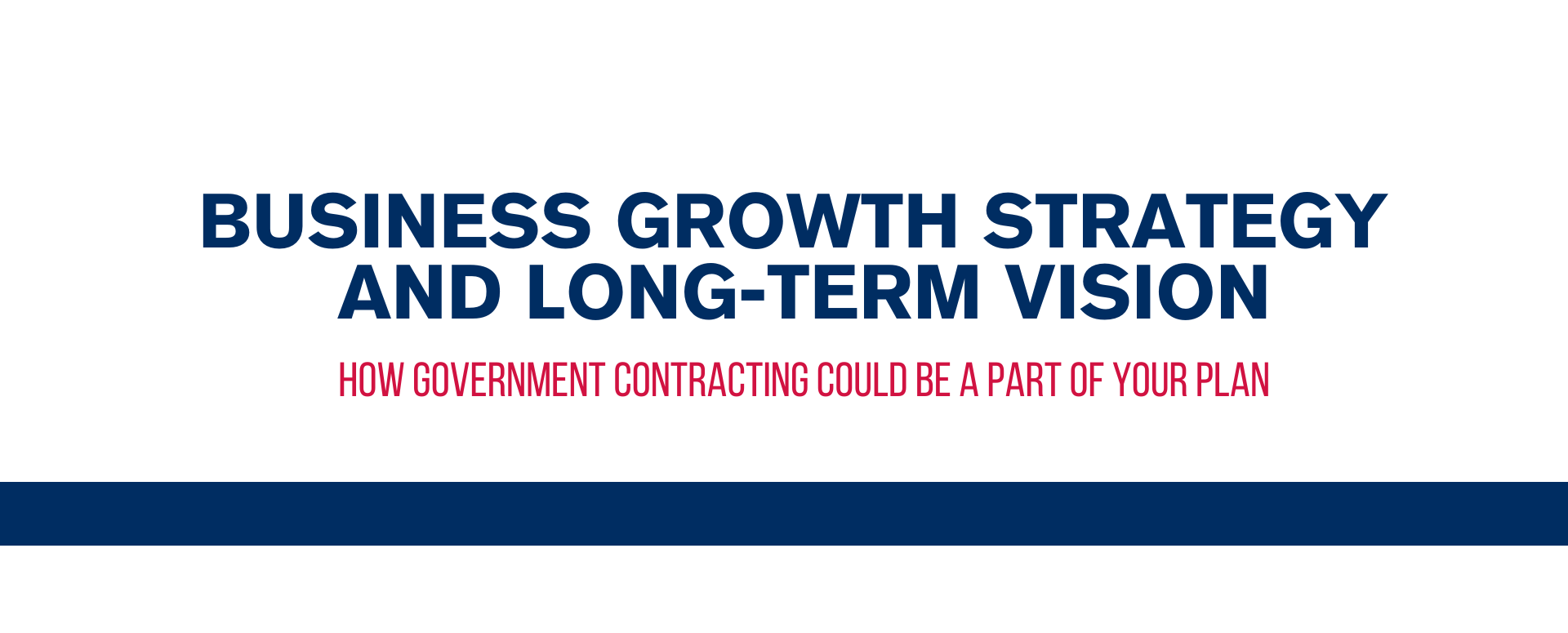
Long-Term Vision: Having a clear vision and strategy for the future while balancing short-term goals. A long-term perspective guides decisions that contribute to sustainable business growth and success.
There are multiple factors to consider when preparing to expand your business. Ultimately, will the estimated increased revenue offset the current cost of expansion? How long will it take to see a return on that investment, and what are the long and short-term complications? How can earnings increase if you have met the current market demand?
The Unites Stated Federal Government is the #1 purchaser of goods and services in the world. Some have said that the Federal Government buys EVERYTHING. While that is not completely accurate, it IS likely that there is room for your business in the federal marketplace.
While both commercial and government purchases involve acquiring goods and services, they operate under different frameworks.
What makes selling to the Federal Government different than commercial sales?
Commercial purchases refer to transactions made by private businesses or individuals in the pursuit of goods or services for various purposes such as resale, consumption, or use within their operations. These purchases are driven by market demands, pricing negotiations, and often involve competitive sourcing or procurement from suppliers. The goals typically involve maximizing value, efficiency, and profitability within the constraints of a private business or individual’s budget.
However, Federal Government purchases involve acquisitions made at the federal level for the purpose of fulfilling its obligations, providing public services, and supporting its operations. These purchases are often subject to stringent rules, including competitive bidding processes, compliance with various legal requirements, and adherence to specific criteria concerning social responsibility, environmental considerations, and national security concerns.
Some key differences between Federal Government and commercial purchases include:
- Regulations and Procedures: Government purchases are subject to specific regulations and procurement procedures dictated by laws, such as the Federal Acquisition Regulation (FAR) in the United States. Commercial purchases are generally driven by market dynamics, negotiation strategies, and individual company policies.
- Competition and Bidding: Government purchases often involve a formal competitive bidding or quote process to ensure fairness and transparency. Private commercial purchases may also involve competition, but the process is typically less formal and may be based on negotiated contracts or agreements between parties.
- Objectives and Priorities: Government purchases emphasize broader objectives, including public interest, socio-economic considerations, and compliance with government policies. Commercial purchases focus on meeting the needs of the business or individual, such as cost-effectiveness, quality, and meeting specific operational requirements.
- Contract Terms and Requirements: Government contracts often have specific terms, conditions, and requirements that must be met by the supplier, including compliance with laws, regulations, and additional clauses related to matters like intellectual property rights, ethics, and auditing. Commercial contracts may vary significantly in their terms and conditions based on negotiations between the parties involved.
How does a business owner enter the federal marketplace?
First, conduct basic market research to learn about your buyer. For example, which federal agency purchases what you sell, how does it purchase (which contract vehicle is used), when does it purchase throughout the fiscal year, and is the quantity purchased enough to justify entry into that space.
The Federal Procurement Data System (FPDS) and USASpending sites house historical contract information of the US Government. There you will find the federal agencies that have previously purchased your goods/services and companies that have been awarded contracts. This information can provide valuable leads for building relationships with federal procurement officers, and possible sub-contracting or teaming opportunities.
If you are still considering if the Federal Government is a good customer for you, the Idaho APEX offers coaching and resources at No Cost to those in Idaho, and partners with several federal entities and resource partners to increase the number of small businesses in the federal supply chain. We would love to work with you!
Beth Freeman Myers, CPP, BA
Idaho APEX Accelerator Business Consultant – North Idaho






